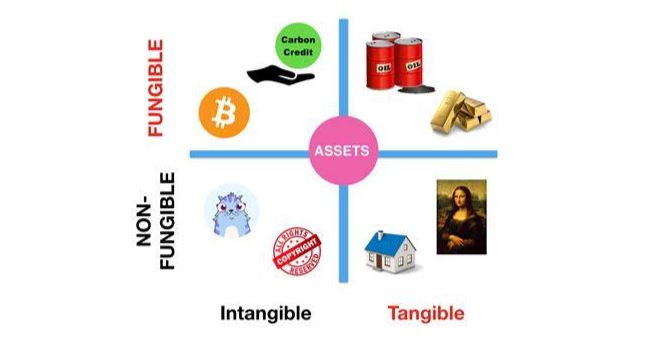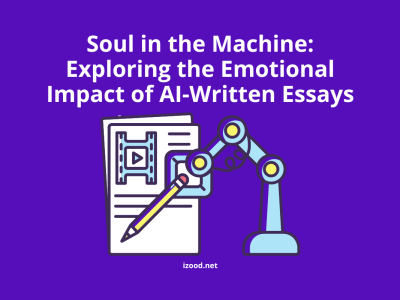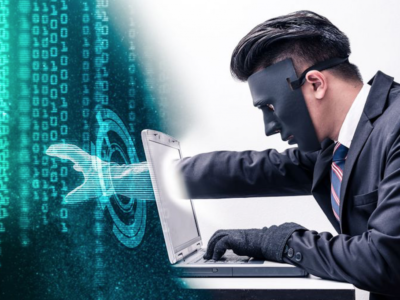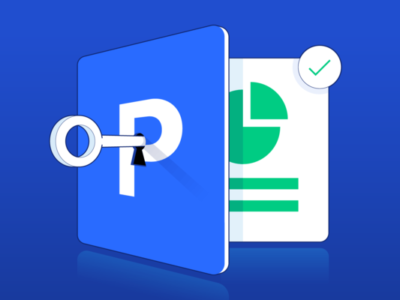With the rise of blockchain and cryptocurrencies, many new technical terms have been in the spotlight. Some of the most interesting are fungible (TFs) and non-fungible tokens (NFTs).
If you are interested in this industry, knowing the difference between these two terms is essential.
Here is a short guide that will help you understand what exactly fungible, non-fungible tokens are and the potential of the latter.

FUNGIBILITY
Products that can be exchanged with others of the same kind are defined as fungible. Fungibility is an inherent quality of an asset: money, mass-produced commodities, wheat, oil, and wine are all examples of fungible goods. They all fulfil the same economic purpose – i.e. I don’t care which specific 10 euro notes I have as long as they are 10 euros.
NON – FUNGIBILITY
In contrast, a non-fungible good is one that, cannot be traded for another good. Usually, they are expensive or scarce items—i.e. It is important for me to have a certain painting by a certain author. I cannot replace it with another painting by the same author or with a painting by another author.
NFT EXAMPLE
Like any currency, cryptocurrencies such as Bitcoin are fungible. Fungible tokens predominated in the blockchain industry in the early stages of blockchain networks (mainly through native cryptocurrencies).
A project called CryptoKitties, which was distributed on the Ethereum Blockchain by DapperLabs, changed the nascent blockchain business in 2017, introducing non-fungible tokens. As in the real world also in the blockchain industry people demand things that only they or a very small number of other people have. Therefore, in contrast to native blockchain tokens or other fungible tokens, non-fungible tokens are a more varied asset class and may have far more useful use cases.
Following the success of CryptoKitties, there are now more NFT initiatives than ever before. The majority of these projects adhere to the ERC-721 or ERC-1155 standard, which states that each NFT must have a transferable, globally unique ID that may also include metadata. It is helpful to think back on instances of the employment of non-fungible tokens in the real world in order to comprehend the potential of NFTs for the protection of assets and identities based on blockchain.
- Games Tokens
Gaming is undergoing a change thanks to NFTs. Characters in video games frequently have a mass of tradable things, clothing, and weaponry. These assets can be traded for game tokens or even actual money by creating non-fungible tokens for them.
Casinos and conventional multiplayer video games are even joining the non-fungible token mania. They understand that blockchain tokens enable users to gain value from the real world while participating in an online game.
As a result, both the economy and gaming are powerful. For instance, two well know project that are increasing them community are Axie Infinity and 1xbitcasino.
- Tickets Tokens
If I have a ticket to see a concert of and you have a ticket to a football match, they are both similar, but they have very different values. Both will grant admission to an event at a certain time and place, but are difficult to transfer. This is the essence of an NFT. It standardizes the ownership of a certain category of assets, but the assets within that category can have very different market values. Ticket sales are a great opportunity for NFTs to revolutionize an industry.
- Identification and clarification Tokens
Things start to get really interesting when we consider identity and the role that NFTs can play in verifying personality. When we take into account identity and the part that NFTs can play in ID verification, things start to get extremely interesting.
For instance, Selfkey is pioneer in this market is building a blockchain-base identity system that allow identity owners to truly own, control and manager they digital identity. In other word, a non-negotiable digital token, such as a birth certificate, may be given to you. Of course, you wouldn’t be able to trade these tokens, but they would be able to interact and verify with the relevant authorities. Additionally, you have the option to voluntarily disclose this information to potential employers, medical professionals, or anyone else who requires it.
,
- What’s more?
Your college diploma can come to you as a digital token. As an alternative, you may request to see your doctor’s confirmed NFT, proof that they have successfully attended medical school, or the authenticity and provenance of a piece of art.
Furthermore, the information that businesses typically gather about you, such as your surfing history or purchasing preferences, may be tokenized and kept private or offered for auction in order to profit from the personal economic data you generate.
CONCLUSION
In conclusion, since the introduction of the non-fungible tokens the growth of blockchain industry is exponential. In contrast to native blockchain tokens or other fungible tokens, NFTs are a more varied asset class and may have far more useful use cases.
At the moment the financial industry is the more affected from this revolution, but the are plenty of uses, such as: gaming, ticketing, Id verification and personal data.
A very important turning point in the world of blockchain has taken place with CryptoKitties. This project has introduced a very important feature for many assets in the real world that makes them unique, therefore give them value. From a simple virtual game of kittens a tiger is growing that is making finance more transparent, and is giving us the means to make ourselves more financially free.







